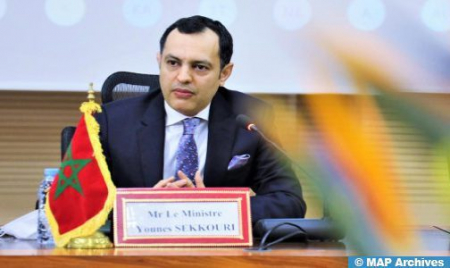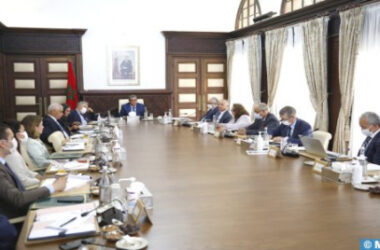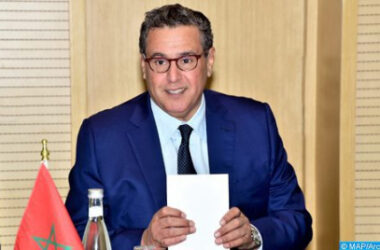On the occasion of the ministerial conference of the Non-Aligned Movement, held on the sidelines of the 111th session of the International Labor Conference, the Minister of Economic Inclusion, Small Business, Employment and Skills Youness Sekkouri stressed the Kingdom’s full support for the conclusions of the group’s meeting, particularly with regard to “the role that social dialogue must play as a space for addressing the new challenges resulting from digitization, artificial intelligence and new economic modes.”
The group must have clear frameworks in the field of employment and social integration, said Sekkouri, stressing the need to support the efforts of the International Labor Organization (ILO), to provide decent employment for young people, women and vulnerable groups who have suffered the consequences of the Covid-19 crisis.
Morocco wants the United Nations’ development goals to be achieved through collective action, he added, calling for the criteria of geographical justice to be strengthened within the Organization, and for a better balance in the contribution of countries from different continents.
He also highlighted the Moroccan experience in establishing social dialogue, which led to a historic agreement last year with the most representative trade unions and employers’ representatives, thus achieving qualitative progress in the social field, despite the repercussions of difficult economic conditions and geopolitical crises.
The Kingdom has put in place a number of sectoral strategies aimed at providing decent work through a strong investment dynamic, as part of the work carried out under the enlightened leadership of His Majesty King Mohammed VI, explained Sekkouri.
On the social justice issue, the Minister pleaded for a resilient social protection system, pointing out that the Kingdom is striving, thanks to a major Royal project, to provide social coverage for all its citizens.
Last year, more than 11 million people joined the list of beneficiaries from this system, he said, noting Morocco’s readiness to share its experience in establishing social dialogue, generalizing social protection and labor market mediation, as well as implementing essential reforms, notably that of vocational training.









